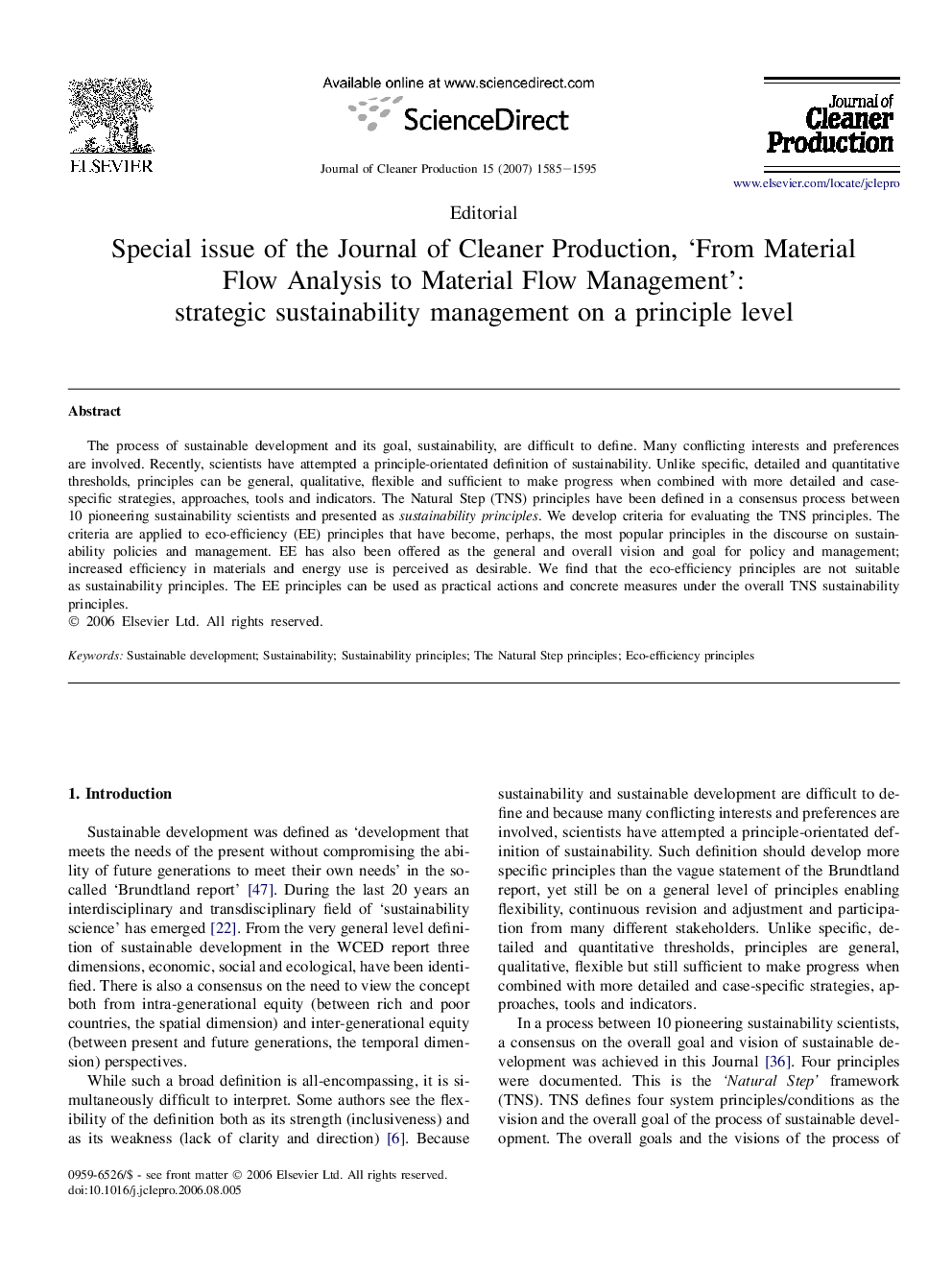| Article ID | Journal | Published Year | Pages | File Type |
|---|---|---|---|---|
| 1747014 | Journal of Cleaner Production | 2007 | 11 Pages |
Abstract
The process of sustainable development and its goal, sustainability, are difficult to define. Many conflicting interests and preferences are involved. Recently, scientists have attempted a principle-orientated definition of sustainability. Unlike specific, detailed and quantitative thresholds, principles can be general, qualitative, flexible and sufficient to make progress when combined with more detailed and case-specific strategies, approaches, tools and indicators. The Natural Step (TNS) principles have been defined in a consensus process between 10 pioneering sustainability scientists and presented as sustainability principles. We develop criteria for evaluating the TNS principles. The criteria are applied to eco-efficiency (EE) principles that have become, perhaps, the most popular principles in the discourse on sustainability policies and management. EE has also been offered as the general and overall vision and goal for policy and management; increased efficiency in materials and energy use is perceived as desirable. We find that the eco-efficiency principles are not suitable as sustainability principles. The EE principles can be used as practical actions and concrete measures under the overall TNS sustainability principles.
Related Topics
Physical Sciences and Engineering
Energy
Renewable Energy, Sustainability and the Environment
Authors
Jouni Korhonen,
